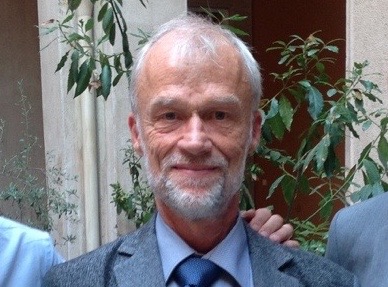Staffan was a colleague and close friend for the last two years, although it felt as though we had known each other for much longer – not least because Staffan was such a warm, understated and open person.
A graduate of Lund University as well as an associate professor of family medicine, Staffan was no ‘hippy nutritionist’. Equipped with an enquiring mind, formidable intelligence and healthy scepticism meant that he was always open to new ideas but would never take anything at face value.
As a young doctor he wondered why it was considered normal for people in the west to gain weight and develop cardiovascular disease as they aged. And then one day he stumbled upon Boyd Eaton’s paper about foods that were consumed during human evolution, which included a brief note on the absence of Western disease among hunter-gatherers. This spurred him into looking up nutrition papers in the library; and then he was puzzled as to why most nutrition scientists were reluctant to apply evolutionary theory to human nutrition, thus acting very differently to experts in animal nutrition. Staffan loved re-telling this story and invariably followed it up with, “Now I was hooked for real”.
Staffan unknowingly went on to follow a fellow Scandinavian’s advice, “…if you are interested in something, no matter what it is, go at it at full speed ahead. Embrace it with both arms, hug it, love it and above all become passionate about it. Lukewarm is no good. Hot is no good either. White hot and passionate is the only thing to be.” (Roald Dahl)
And so began a lifetime dedicated to research in evolutionary nutrition, starting with the Kitava study, for which he is probably best known, and which is chronicled in his landmark book “Food and Western Disease”. Reading this book was my light-bulb moment whilst researching nutrition – suddenly everything made sense.
Staffan knew that convincing the medical profession of evolutionary nutrition would be no easy task – the way forward was with clinical trials, and it was going to be a long, slow, uphill battle. But that’s exactly what he set out to do with his research group at Lund University after coming back from Kitava. Pursuing his passion led Staffan to becoming a world expert on evolutionary nutrition; and after reaching that pinnacle he never behaved in an arrogant or self-important way.
On meeting Staffan you would never know that he had almost a ‘Guru’ like status in the nutrition world – a GP trainee from his practice recently told me that she only found out about his fame when, after innocently asking for dietary advice for a patient, he pointed her towards his Kitava study online. She then went on to say, “I know he didn’t like to preach, or push his beliefs on others, but I wish he would have been just a little less humble! I used to say to him – Why write a marvellous book and hide it?”
Besides conducting studies, writing scientific papers and a book, Staffan also loved playing the guitar, cajón drums and singing. He used to have a weekly jamming session with a musician friend, who very kindly sang and gave a lovely rendition on the piano at Staffan’s memorial service.
To the last he was a man of integrity and he had that rare combination of being intelligent, wise, cautious and kind. We have indeed lost a great man and I feel honoured and privileged to have known Staffan. It all still feels a little unreal and it is with immense sadness that I write this tribute.
Staffan will be dearly missed by all his family, friends and colleagues.
A quote from Food and Western Disease:
“The inability or refusal to apply evolution’s basic principles when interpreting dietary studies, 150 years after the publication of Darwin’s The Origin Of Species is astounding.”
A few of Staffan Lindeberg’s papers, studies and videos:
Paleolithic diets as model for prevention and treatment of Western disease
Origins and evolution of the Western diet: health implications for the 21st century
Dietary Shifts and Human Health: Cancer and Cardiovascular Disease in a Sustainable World
Evolutionary aspects of nutrition
AHS11 Food and Western Disease by Staffan Lindeberg MD PhD

